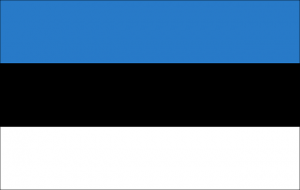 Estonia – people, culture, language:
Estonia – people, culture, language: The country
Estonia today: Estonia is the northernmost Baltic State and with a population of only 1.4 million, it is also the smallest. On 20 August 1991 Estonia reestablished independence and in 1994 the last Russian troops withdrew from the country. Rapid development of the communications infrastructure followed and the capital city, Tallinn, is now particularly technologically advanced and produces half of the country’s GDP. Estonia has done well since gaining independence due to its favourable location and strong Scandinavian links, particularly with Finland and Sweden. An excellent business environment and conditions for production, liberal economic policy and low taxes have already attracted numerous companies and continue to make Estonia an exceptional location for foreign direct investment. The country gained accession to the EU in May 2004.
Environment: 38.7% of Estonia is forested, and 10% of the country is a nature reserve. Estonia is home to several mammals and plant species that are extinct or very rare in other parts of Europe. The most numerous species of the large mammals are the roe deer, elk, and wild boar.
The people
Song: Estonia is often called the ‘singing nation’. Most Estonians sing in a choir, and choral music is considered by many to be a symbol of the country at large. This culture of song remains very strong both within Estonia, where song festivals served as a rallying cry against foreign oppression throughout their years under Soviet occupation, and within Estonians’ adoptive homelands, where this distinctive aspect of their culture has helped to foster new ties and a sense of belonging.
Ethnic mix: 67.9% of the population is Estonian, 25.6% is Russian, 2.1% is Ukrainian, 1.2% is Belorussian and 0.92% is Finnish. Religion: The main religion in Estonia is Lutheran.
Character: A foreign visitor is well advised to bear in mind that Estonians try to avoid sentimentality. Much of what other nationalities voice without hesitation, Estonians may reveal only once they know a person quite well. Estonians are reputed to be stubborn and tend not to be impressed by others’ social standing. Authority is usually ridiculed and the sceptical nature of an Estonian – what they like to call ‘a sound peasant mind’ – can appear narrow minded to outsiders.
Did you know? At 37, Prime Minister Julian Parts is the EU’s youngest leader. Estonians love new technology: 80% of banking is done on-line, and businesspeople habitually negotiate and close deals by texting each other on their mobile phones. The Estonian Government was the first in the world to hold a cabinet meeting online, saving a massive 1.4 million sheets of paper! Estonians are also into reading in a big way – their country has the third highest literacy rate in the world.
Ernest Hemingway wrote that in every port in the world, at least one Estonian can be found: this speaks volumes about the nation’s enterprising spirit.
The Estonian version of ‘bon appétit’ is jätku leibu, which means ‘may your bread last’.
It never goes completely dark at night in Estonia from the beginning of May to the end of July.
By continuing to use the site, you agree to the use of cookies. Cookie Policy
The cookie settings on this website are set to "allow cookies" to give you the best browsing experience possible. If you continue to use this website without changing your cookie settings or you click "Accept" below then you are consenting to this.